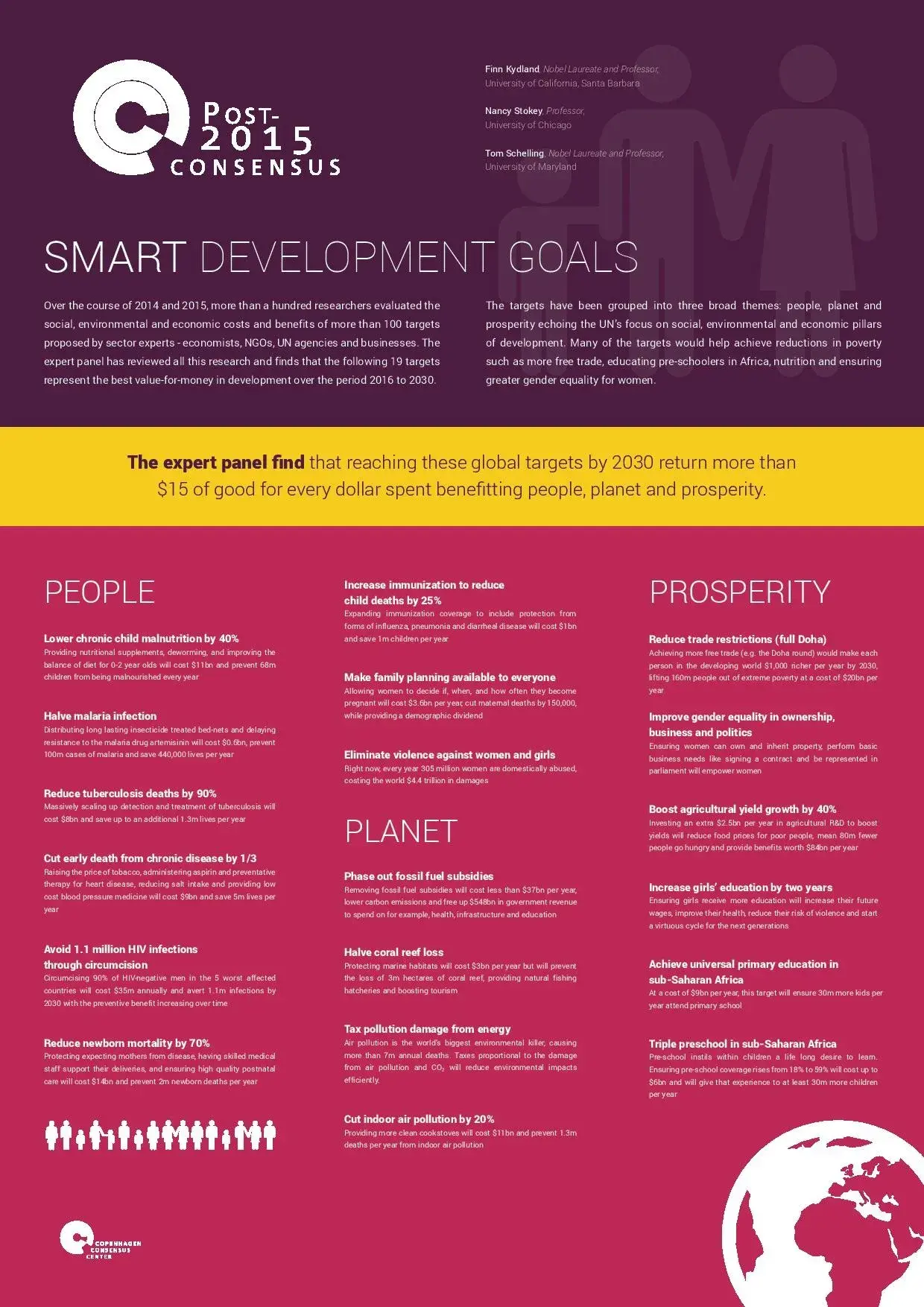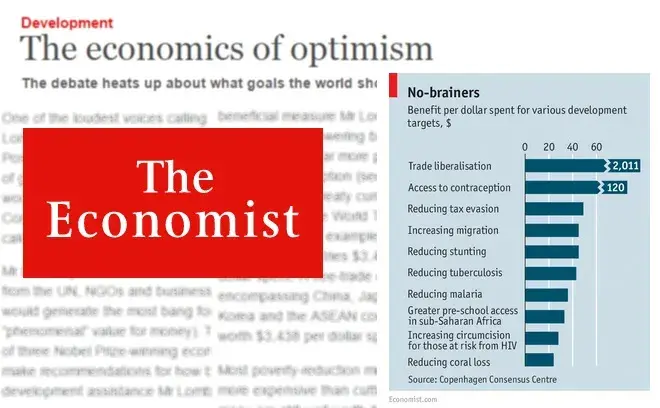Education: What's the smartest SDG target?

As reported on in Project Syndicate, reduce by 50% the proportion of children not in pre-school in sub-Saharan Africa. For every dollar spent, the net benefit is 33 dollars.
The top target is not universal, because pre-school is a much better investment in Sub-Saharan Africa than elsewhere. The top target is not 100% because that is both much harder and much less effective.
You can read all the papers here and download the one page PDF here.
The smartest targets for the post-2015 development agenda
What are the smartest targets for the post-2015 development agenda?
In a world of limited resources, we can’t do everything, but how should we prioritize? The Copenhagen Consensus Center provides information on which targets will do the most social good relative to their costs. The final decision on choosing goals will definitely rest on a number of factors, not just economics – but knowing the costs and benefits provides an important piece of information.
The Post-2015 Consensus brought together, renowned experts from the UN, NGO and private sectors with 60 teams of economists to produced 100+ research papers to establish the most effective targets for the post-2015 development agenda within 22 core issue areas: Air Pollution, Biodiversity, Climate Change, Conflict & Violence, Data for Development, Education, Energy, Food Security, Gender Equality, Governance & Institutions, Health: Chronic Diseases, Health: Health Systems, Health: Infant Mortality & Maternal Health, Health: Infectious Diseases, Infrastructure, Illicit Financial Flows, Nutrition, Population & Demography, Poverty, Science & Technology, Trade, and Water & Sanitation.
An Expert Panel including two Nobel Laureates has reviewed all of this research and identified 19 targets that represent the best value-for-money in development over the period 2016 to 2030.
Only have three minutes? Watch our introduction video to the Post-2015 Consensus project.

Making prioritization a factor in the post-2015 debate
An overview of Copenhagen Consensus' ground-breaking research which is shaping the thinking for the 193 governments about to prioritize the smartest development goals for 2016-2030. If you've just read the article in The Economist you might be interested in exploring more about our project, and the research we've undertaken so we have put together an online supplement with more in-depth information.


